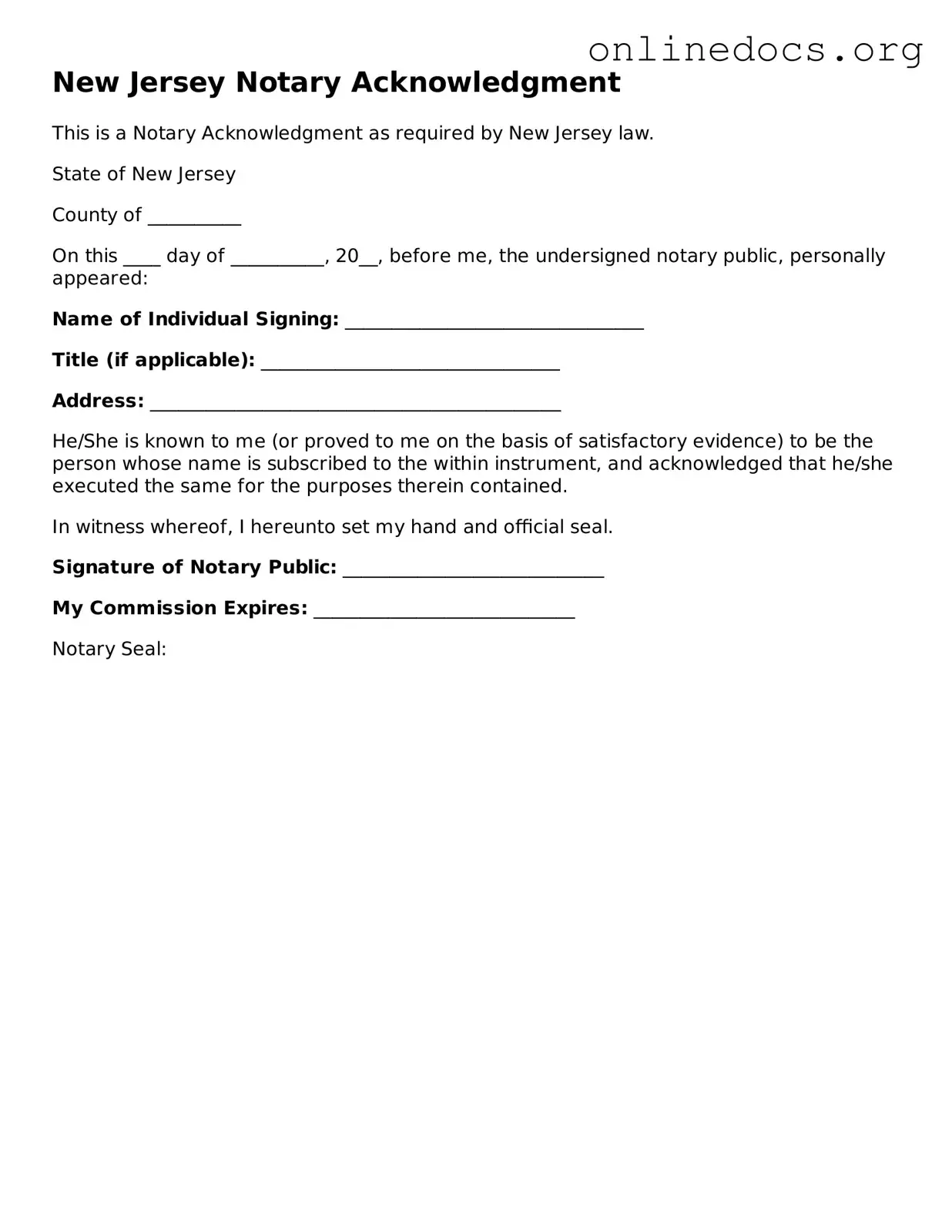Filling out the New Jersey Notary Acknowledgment form can seem straightforward, but many individuals stumble over common pitfalls. One frequent mistake is failing to include the correct date. The date is crucial, as it indicates when the notary performed the acknowledgment. Omitting this detail can lead to confusion and may invalidate the document.
Another common error involves the notary's signature. Some people assume that any signature will suffice, but the notary must sign in their official capacity. If a notary signs their name without indicating their title, the acknowledgment may be deemed incomplete. It’s essential to ensure that the notary's name and title are clear.
Additionally, people often overlook the importance of the signer’s presence. A notary must witness the signer’s signature; if the signer is not physically present, the acknowledgment cannot be valid. This requirement is fundamental to the notary's role in preventing fraud and ensuring authenticity.
Using an outdated form is another mistake that can complicate matters. Notary laws can change, and using an old version of the form may result in non-compliance. Always check for the most current version of the New Jersey Notary Acknowledgment form to avoid this issue.
Some individuals fail to provide the appropriate identification for the signer. The notary is required to verify the identity of the individual signing the document. Without proper identification, the notary cannot perform their duty, and the acknowledgment may be invalidated.
Another frequent oversight is neglecting to fill out the complete address of the signer. The acknowledgment should include the signer’s address for clarity and record-keeping purposes. Leaving this section blank can create complications later on.
In addition, people sometimes mistakenly think that a notary can provide legal advice. Notaries are not authorized to give legal counsel. This misunderstanding can lead to incorrect assumptions about the document’s implications and may result in significant consequences.
Furthermore, some individuals might forget to check the notary’s commission expiration date. A notary must be commissioned and active at the time of the acknowledgment. If the notary’s commission has expired, the acknowledgment is not valid, regardless of how well the form is filled out.
Lastly, neglecting to keep a record of the notarial act is a mistake that can come back to haunt individuals. Notaries are required to maintain a journal of their notarial acts, and failing to do so can create challenges if the document is ever questioned. Keeping accurate records is essential for accountability and transparency.
